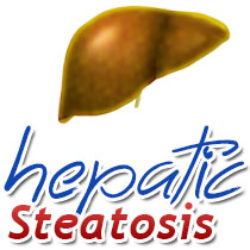Fatty liver disease or fatty liver is a fairly common liver disorder characterized by the accumulation of fatty deposits in the liver. It results from a process in
which the cells retain excessive lipids (or fats), particularly in the liver. In most cases, fatty liver disease produces no overt symptoms. Diagnosis of the condition usually results from tests undertaken to identify other problems.
Typically the first stage involves a blood test revealing elevated liver enzymes,
followed by the use of medical imaging technology such as ultrasound, CAT scan (computer assisted tomography), or MRI (magnetic resonance imaging). The causes of fatty liver disease fall generally into two categories, alcoholic and non-
Alcoholic Fatty Liver Disease
Alcoholic fatty liver disease is liver disease caused by the consumption of excess alcohol. A majority of heavy drinkers will develop some degree of fatty liver disease.
Alcohol abuse can also lead to much more serious liver diseases such as alcoholic hepatitis or alcoholic cirrhosis of the liver, and alcoholic fatty liver disease can be an early sign of these diseases (although only some ten to fifteen percent of heavy drinkers actually develop serious liver disease as a consequence of their drinking).
Because of this, among fatty liver causes alcohol abuse is always taken seriously. In addition to which, of course, alcohol abuse often has other serious consequences for health.
The progress of alcoholic fatty liver disease is not different in any great degree from non-
Additional Causes
The other set of fatty liver causes is simply anything else besides alcohol abuse that is capable of causing the condition. There are a number of possible factors. Obesity, diabetes, and hereditary conditions affecting the metabolism and causing excessive retention of lipids in the cells, are all possible causes of fatty liver disease. In addition, fatty liver disease can manifest as an early stage of non-
Once alcoholic fatty liver disease has been ruled out through lifestyle evaluation (alcohol consumption under two drinks per day is considered sufficiently low to rule out alcohol abuse as a cause of the fatty liver condition), the next step is to determine which non-
If the cause is obesity, the recommended treatment is a diet and exercise regimen resulting in gradual weight loss. (Too-
If the fatty liver condition arises from a hereditary defect, treatment can be particularly difficult and sometimes more aggressive treatment is required. Antioxidants, insulin sensitisers, and lipid-
